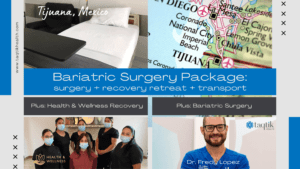Navigating Health During Stress: Challenges and Strategies
Navigating the intricate lanes of modern life, you encounter stress, a pervasive companion that may cast profound impacts on your well-being. Juggling work, family, and personal life sparks a vital query: How formidable is the challenge to preserve health amidst stress? Let's navigate through the challenges stress imposes on your health, such as processed food addiction and medication management, and uncover practical strategies to uphold your well-being even amidst life’s pressures.
Unveiling the Connection Between Stress and Health:
- Physical Health Impact: Chronic stress can levy a hefty toll on your physical health, potentially leading to elevated blood pressure, diminished immune functionality, and a heightened risk of heart disease. Your body's emergency response, the "fight or flight" mechanism, might become overactive, navigating towards long-term health concerns.
- Mental Health Consequences: Stress carves a pathway closely tied to mental health issues, including anxiety and depression. Persistent stress can nurture or worsen these conditions, necessitating that you address stress to safeguard mental well-being.
Navigating the Tides of Healthy Choices Amidst Stress:
- Emotional Eating and Food Addiction: Stress often nudges you towards emotional eating and an addiction to processed foods, whereby comfort foods, rich in sugar, salt, and unhealthy fats, become a coping tactic. These choices can steer you towards weight gain, nutritional deficiencies, and a cyclic dependency on processed foods.
- Reliance on Medication: Stress can also channel you towards an increased reliance on medications, especially those tailored for managing anxiety, depression, and other stress-oriented conditions. Overutilization or mishandling of medication may navigate towards detrimental health outcomes.
- Sleep Deficiencies: Stress can interrupt your sleep patterns, propelling you towards insomnia or suboptimal sleep quality. Lack of sleep can influence cognitive function, mood, and overall health, further entwining you in unhealthy eating habits and medication dependence.
- Diminished Physical Activity: Amidst stress, maintaining a commitment to physical activity becomes a daunting voyage. This may navigate you towards a sedentary lifestyle, detrimental to health, and exacerbate the cyclical pattern of stress, unhealthy eating, and medication application.
Strategies to Uphold Health Amidst Stress:
- Harnessing Stress Management Techniques: Embark on a journey with stress management strategies, such as mindfulness, deep breathing, meditation, or yoga. These practices can guide you towards reduced stress hormone levels, promote relaxation, and assist in breaking free from food addiction and minimizing medication dependence.
- Adopting Healthy Eating Habits: Turn your sails towards a nutritious diet by ensuring a balanced intake. Curtail processed foods and sugars, and prioritize whole foods that nourish your body. Seek support or counseling to navigate through food addiction.
- Navigating Medication Management: Engage in dialogues with your healthcare provider to explore your medication regimen. Investigate if modifications or alternative treatments may present a viable course to diminish reliance on stress-related medications.
- Incorporating Regular Exercise: Embed physical activity into your routine, even a brief walk suffices. Exercise unveils a path to endorphin release, enhancing mood, alleviating stress, and supporting efforts to detach from unhealthy habits and medication utilization.
- Ensuring Adequate Sleep: Prioritize sleep hygiene to enhance sleep quality. Rejuvenating sleep can reduce stress, ease healthy food choices, and trim down reliance on sleep-influencing medications.
- Leveraging Social Support: Leverage your friends, family, or support groups for emotional backing during stressful epochs and while working to overcome food addiction and minimize medication dependence. Sharing your journey offers relief and a sense of connection.
- Seeking Professional Assistance: Should stress, food addiction, and medication reliance overwhelm and begin steering your daily life off course, consider seeking the support of a mental health professional or addiction counselor. They can guide, support, and strategize with you to manage stress, navigate through food addiction, and minimize medication utilization.
In conclusion, preserving health amidst stress and navigating through food addiction and medication reliance is undeniably a challenging voyage. Acknowledging the impact of stress on both physical and mental health is your starting point. By adopting practical strategies to manage stress, prioritize self-care, break free from unhealthy habits, and seek support for food addiction and medication management, you can navigate through its negative impacts and maintain your well-being. Remember, your health is an invaluable treasure, and investing in it, particularly amidst turbulent times, is a crucial endeavor.







